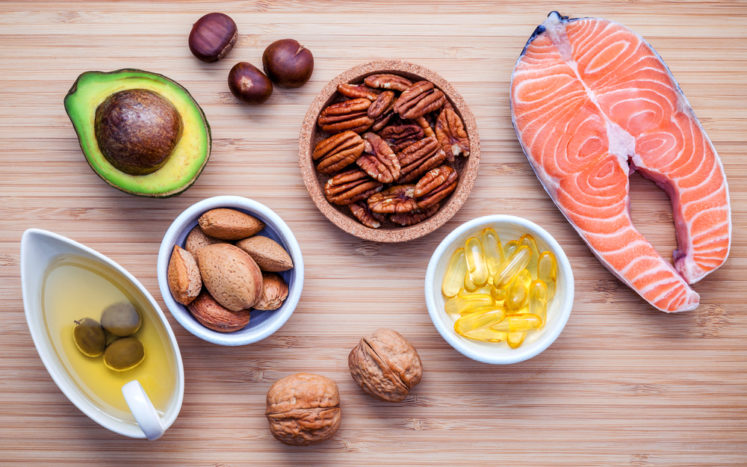Contents:
- Medical Video: How to master your sense of smell - Alexandra Horowitz
- How do you improve our sense of smell and taste?
- 1. Enough for iron and omega-3 every day
- 2. Pay attention to your eating habits
- 3. Stop smoking and avoid vehicle fumes
- 4. Sufficient water intake and regular exercise in the morning
- 5. Avoid strong odors and preservative foods
Medical Video: How to master your sense of smell - Alexandra Horowitz
The effects of aging not only change the physical appearance, but also the function of your five senses. However, that does not mean you may underestimate this change. The sense of smell that has started to smell less sharply is reportedly associated with an increased risk of brain cognitive disorders, such as dementia or Alzheimer's disease. Meanwhile, impaired taste sensations can cause a loss of ability to distinguish the taste and texture of food which can ultimately affect eating habits and health conditions of the body.
In addition to increasing age, pain can also inhibit the function of the nose and mouth to taste food. When experiencing inflammation or infection, the levels of TNF-α protein in the body will increase to fight the disease. Increased levels of this protein cause interference with the function of the tongue which makes whatever you eat or drink feels more bitter than usual. When flu or runny nose, the nose also becomes blocked by snot, making it less sharp to smell.
How do you improve our sense of smell and taste?
The reduced ability of the sense of smell and taste can be bad for you to detect danger. You can't distinguish stale food or smell gas leaks.
Well, so that your nose and tongue stay healthy and always function well, let's follow the tips below.
1. Enough for iron and omega-3 every day
Without realizing it, the nutritional intake of our daily food can support the good functioning of your five senses. Iron in particular helps sharpen the function of the nose to smell odors, while omega-3 maintains the function of the tongue to detect food textures and distinguish taste.
You can get the intake of these two important minerals from various types of fatty fish such as salmon, tuna and sardines; shells; lean beef; nuts; and dark green leafy vegetables like spinach or mustard greens.
2. Pay attention to your eating habits
Not only food choices, your eating habits must also be considered. Poor eating habits can affect the function of the nose and tongue.
Now to hone the functions of these two senses, make sure you eat when your nose is working very well, which is when you are hungry. Try to breathe the aroma of the food first before starting to eat and absorb it right from where the aroma comes from. For example, guess, does the scent come from cumin or turmeric?
Then when eating, slowly chew calmly so that your tongue can recognize the texture and taste of the food better. Avoid foods that are too hot or too cold.
3. Stop smoking and avoid vehicle fumes
Smoking is a habit that harms yourself (also other people, of course!). Smoking makes you more prone to gum disease, canker sores, and other diseases that can interfere with your tongue's function.
In addition, cigarette smoke can also disrupt the performance of receptors on the nose and tongue. In the long run, the olfactory nerve behind the nose as a smell can be permanently damaged.
Apart from cigarette smoke, you must also avoid vehicle fumes. Stay away from people who are smoking and always use a nose mask when traveling out.
4. Sufficient water intake and regular exercise in the morning
Drink plenty of water prevents you from dehydration which is characterized by a dry mouth. Without enough saliva, the tongue cannot work well for tasting food.
Also get used to doing simple sports, such as walking relaxed, brisk walking, or running for 30 minutes every day. It would be better if done in the morning. Morning exercise gives you a fresher and cleaner supply of air, which helps maintain the good functioning of the nose in breathing air.
5. Avoid strong odors and preservative foods
Smelling a pungent smell, like the smell of rubbish, perfume, or a pest exterminator spray, can affect the health of your nose. Lingering in a pungent odor can cause severe headaches, dizziness, and nausea. Instead, try to breathe a more soothing aroma, such as peppermint or cinnamon aromatherapy oil, which can increase nerve stimulation of the nose to be sharper.
Also, reduce preservative foods that contain additional salt and sugar. If you are accustomed to eating this type of food, your tongue will certainly not be able to detect foods that are actually too salty or too sweet. Foods that are too salty or sweet also make your mouth become thirsty and dry easily.

















